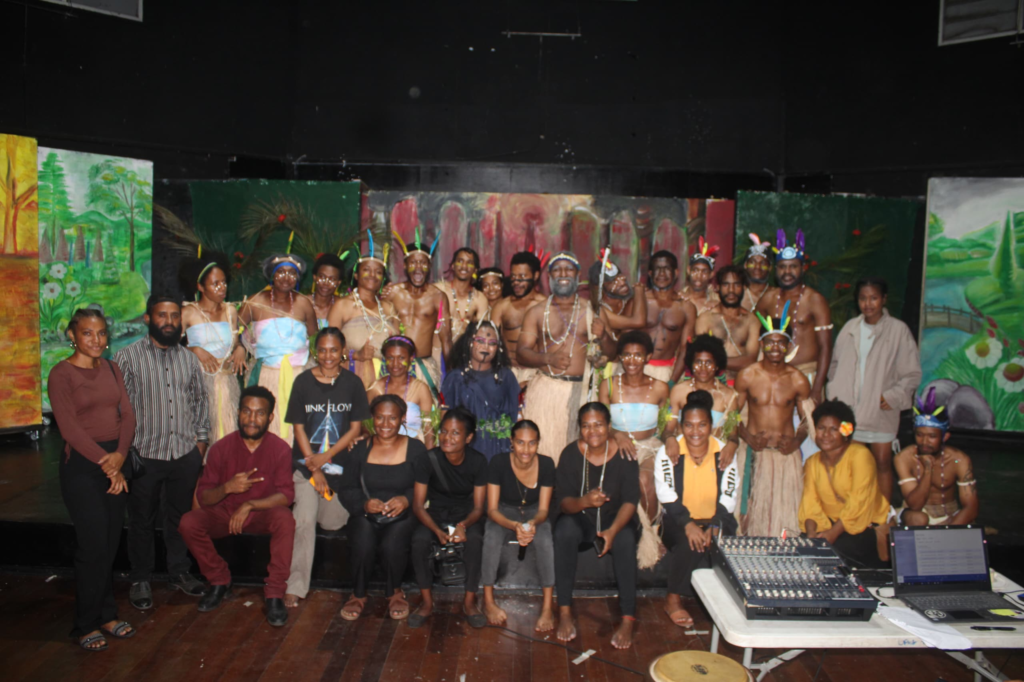By MIRIAM MALAWA
AS technology becomes increasingly integrated into daily life, concerns have emerged about the growing distance between younger generations and their cultural heritage.
The rise of smartphones and digital entertainment has led to a decline in traditional practices, such as children sitting with elders to listen to folklore, myths, and legends.
In many provinces, the timeless tradition of storytelling is at risk of fading away as phones and other devices capture the attention of young minds, drawing them away from books and cultural knowledge.
In response to this growing cultural divide, a group of final-year theatre arts students has taken action to preserve their heritage through the power of performance.

Their play, The Fall of Aming, seeks to reconnect audiences with the stories of the past, portraying them in a way that resounds with modern viewers while preserving their cultural roots.
Written by Tiata Leo, co-written by Sandra Naure and directed by Alysha Paisabua, The Fall of Aming is an adaptation of a legendary tale from Morobe Province that explores the origins of chieftaincy. Through the medium of theatre, the students aim not only to entertain but also to highlight the importance of preserving and passing down traditional stories.
By transforming these oral histories into a dramatic production, the play serves as both a cultural preservation effort and a call to address the issue of disconnect between the younger generation and their cultural identity.
Miss Paisabua said the play’s storyline digs into the legend of how chieftaincy came into existence, shedding light on leadership structures, customs, and values from Morobe Province’s past.
Meanwhile, Miss Leo said adapting folklore into theatre is a powerful way to ensure that these stories are not lost to time.
“Theatre allows us to preserve our culture by bringing these legends to life,” she said. “Through drama, we can communicate the values, traditions, and lessons of our ancestors to a modern audience.”
Co-writer Miss Naure also emphasized the role of theatre in preserving cultural identity, particularly in an age where other distractions pull people away from traditional forms of storytelling.
“Theatre serves as a mirror to reflect our culture, our stories, and our identity. It’s more than just entertainment—it’s a way to ensure that we don’t forget who we are or where we come from,” she explained.
By staging these cultural narratives, the students hope to reignite interest in folklore and promote a deeper understanding of the province’s heritage.

